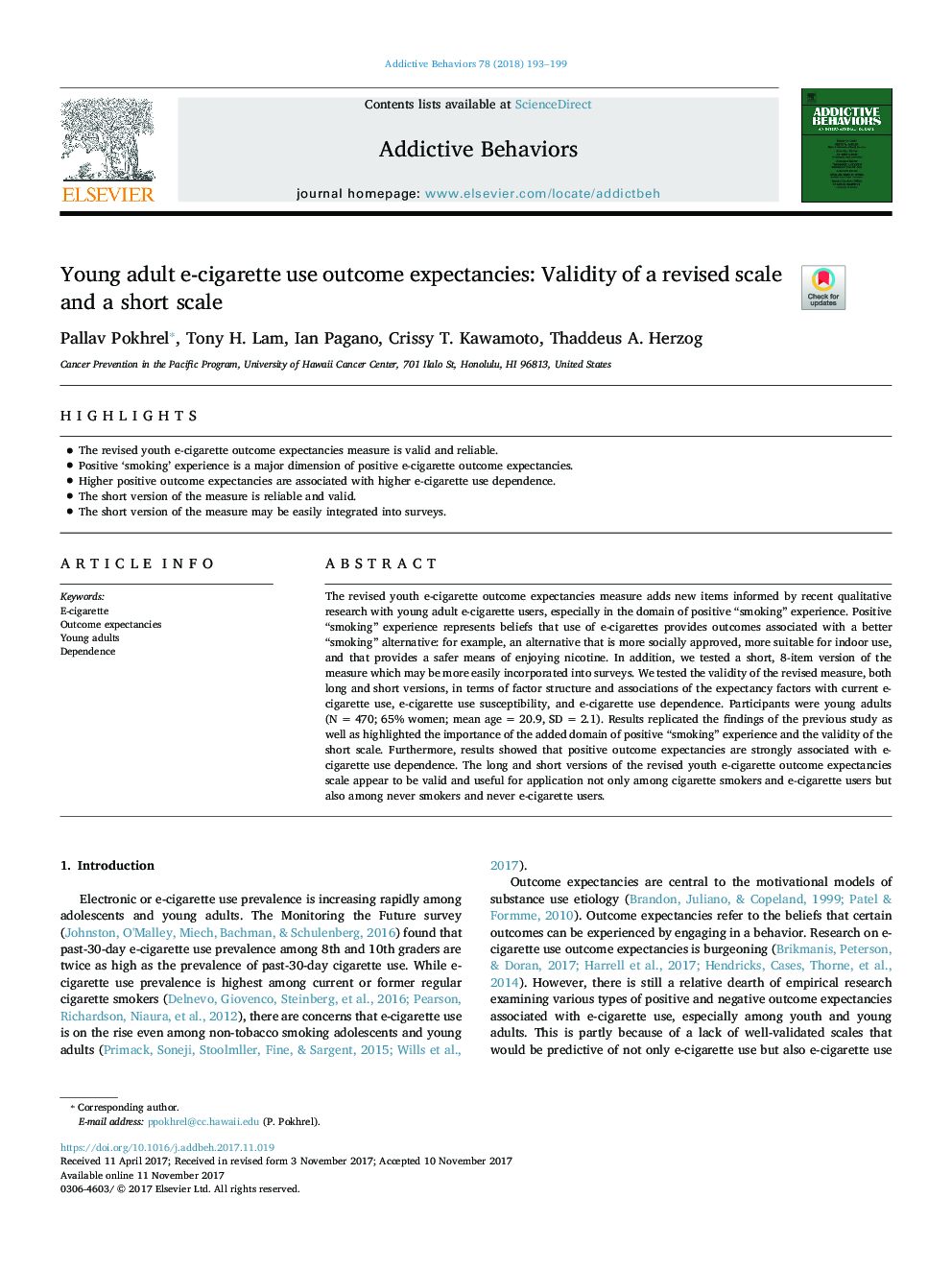| Article ID | Journal | Published Year | Pages | File Type |
|---|---|---|---|---|
| 7259528 | Addictive Behaviors | 2018 | 7 Pages |
Abstract
The revised youth e-cigarette outcome expectancies measure adds new items informed by recent qualitative research with young adult e-cigarette users, especially in the domain of positive “smoking” experience. Positive “smoking” experience represents beliefs that use of e-cigarettes provides outcomes associated with a better “smoking” alternative: for example, an alternative that is more socially approved, more suitable for indoor use, and that provides a safer means of enjoying nicotine. In addition, we tested a short, 8-item version of the measure which may be more easily incorporated into surveys. We tested the validity of the revised measure, both long and short versions, in terms of factor structure and associations of the expectancy factors with current e-cigarette use, e-cigarette use susceptibility, and e-cigarette use dependence. Participants were young adults (N = 470; 65% women; mean age = 20.9, SD = 2.1). Results replicated the findings of the previous study as well as highlighted the importance of the added domain of positive “smoking” experience and the validity of the short scale. Furthermore, results showed that positive outcome expectancies are strongly associated with e-cigarette use dependence. The long and short versions of the revised youth e-cigarette outcome expectancies scale appear to be valid and useful for application not only among cigarette smokers and e-cigarette users but also among never smokers and never e-cigarette users.
Related Topics
Life Sciences
Neuroscience
Behavioral Neuroscience
Authors
Pallav Pokhrel, Tony H. Lam, Ian Pagano, Crissy T. Kawamoto, Thaddeus A. Herzog,
